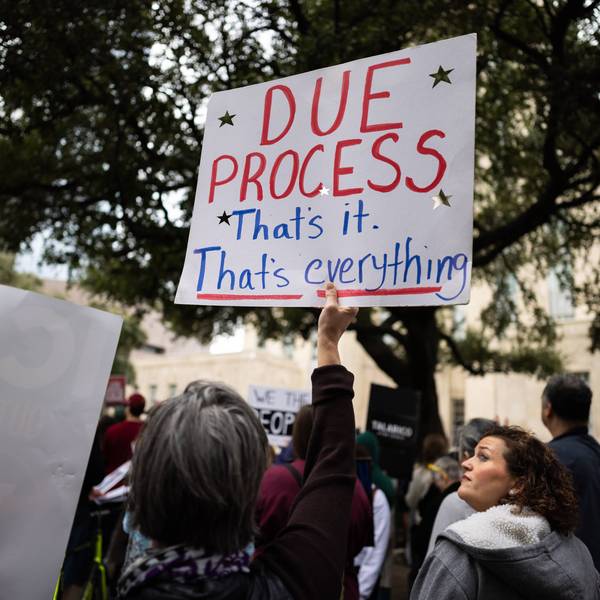Two-thirds of the world's population do not have access to the justice system, a glaring gap between rich and poor and a stark reminder of the gulf that exists between between those who are and are not given due process.
That's according to a new report (pdf) from the Task Force on Justice, a program of the Pathfinders for Peaceful, Just, and Inclusive Societies. Pathfinders is a coalition of U.N. member states and a number of non-governmental organizations that work with the New York University Center for International Cooperation.
The report found that 5.1 billion people--almost two-thirds of the planet's 7.53 billion human beings--do not have access to justice and that of those 5.1 billion, 1.5 billion have no way of solving legal disputes or crimes against them.
It's time to see access to justice as a human rights issue that the world must invest in, said Pathfinder's David Steven.
"The critical thing here is that we just assume the world's justice systems will only meet the needs of a very few people, just like we assumed with education in the 19th century," said Steven.
"As we made the case for investing in education for girls as something important and cost-effective," Steven added, "we now have to demonstrate the benefits of doing the same to justice systems and maximize that momentum for change."
According to the report, the most common cases of injustice involve violence, losing land, and money disputes.
And the global issue of injustice has three main dimensions, the report (pdf) says. They are:
- At least 253 million people live in extreme conditions of injustice--they are modern slaves, are stateless, or their countries or communities are engulfed in conflict, violence, and lawlessness.
- 1.5 billion people cannot resolve their everyday justice problems--they are victims of crimes they do not report or have a serious civil or administrative problem they cannot resolve.
- 4.5 billion people are excluded from the opportunities the law provides--they lack legal identity or other documentation related to employment, family, or property, and are therefore unable to access economic opportunities and public services, or the protection of the law.
"The justice gap is both a reflection of structural inequalities and disparities in power, and a contributor to these inequalities," said Hina Jilani, one of the task force's co-chairs. "The burden of injustice falls all too heavily on women, children, and other vulnerable groups who face the hardest struggle to access the justice system and exercise their rights."
Jilani, who is a longtime human rights activist from Pakistan, co-chairs the Task Force alongside Priscilla Schwartz, who is the first woman to serve as the Attorney General and Minister of Justice for Sierra Leone. The two serve with German Carlos Garavano, Minister of Justice and Human Rights for Argentina, and Sigrid Kaag, Minister for Foreign Trade and Development Coop in the Netherlands.
In comments to The Guardian, Schwartz said that a lack of justice was a major hindrance to economic and social development.
"Injustice feeds further injustice," said Schwartz.
Mary Robinson, former first female president of Ireland and chair of the Elders, a group of global leaders, said in an opinion piece that the cost of a lack of justice can't be overstressed in its impact.
"Such situations can have a cascading impact on individual lives, families, communities, and the wider social fabric," said Robinson. "Many people become unemployed. Around a third of people with a justice problem are likely to experience a physical or mental health problem."
Still, Robinson said, there's a path forward to a better future--if humanity is willing to put in the time and energy.
"With sufficient political will and financial ambition," said Robinson, "I am certain that we can advance the cause of justice for all and build a world where access to justice is a right afforded to everyone, not just the privilege of a minority."




